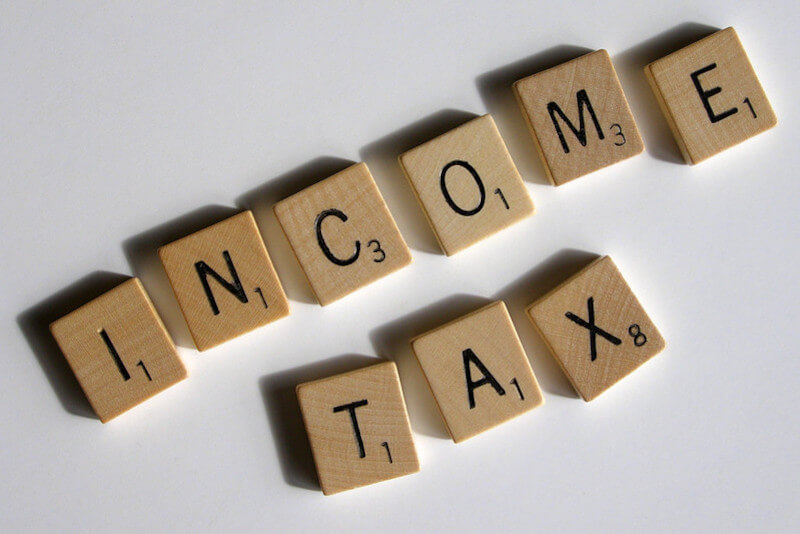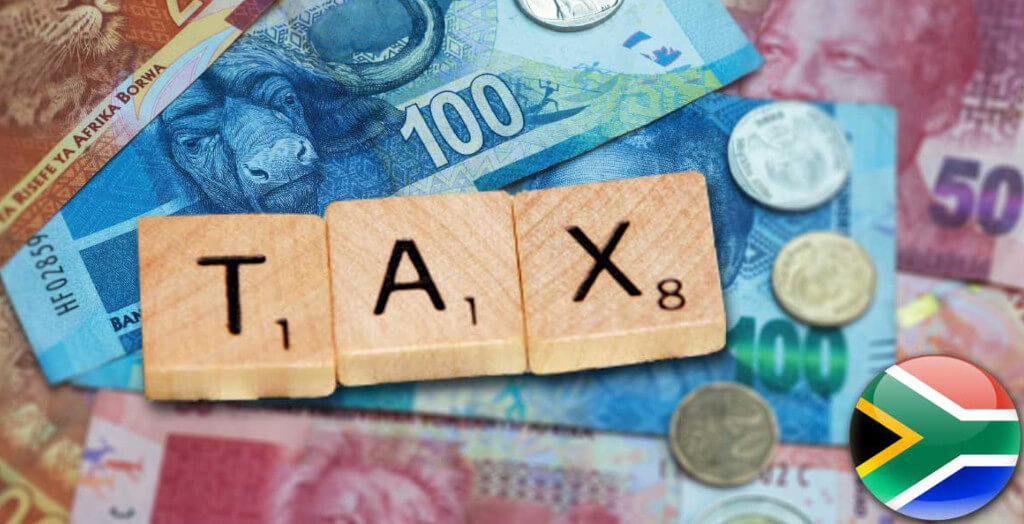There are different tax rates for smaller or different types of firms in South Africa, but the basic tax on revenue for registered companies is now a flat 28% collected by the South African Revenue Services (SARS). Beginning with taxable years beginning after March 31, 2023, the top marginal tax rate will decrease to 27%. Foreign corporations with a presence in South Africa and enterprises providing individual services account for the bulk of corporate income tax revenue in the country. Businesses have the option of either registering online or visiting a local SARS office to pay their taxes.
Who is Liable for South Africa’s Corporate Tax Burden?
All businesses operating legally in South Africa must pay corporate tax to the South African Revenue Service (SARS). Companies operating out of South Africa must typically pay corporate tax to the South African government on their worldwide profits.
The Department of South African Taxation
Companies that are not headquartered in South Africa but have operations or a branch in the country are subject to South African taxation on their worldwide income. Companies of the following sorts are required to pay corporate tax in South Africa:
- Both publicly traded and privately held
- Commercial enterprises
- Incorporate closures
- Co-operatives
- Schemes for pooled investments
- Companies of a Smaller Size
- Organizational Shareholders
- Legal Entities
- Non-Profit Organizations
- Inactive businesses
Individual and Business Entities Must Pay Corporate Income Tax
You will be subject to individual income taxation in South Africa if you work as a freelancer or sole proprietor, or if your business operates as a partnership or unincorporated joint venture. You are required to file a personal income tax return (ITR12) instead of a business tax return in South Africa. Any number of people can form a partnership. If this is the case, each partner’s portion of the partnership’s profits is taxed separately.
South Africa’s Tax Rates on Corporations
In South Africa, businesses pay a uniform rate of 27% in corporate taxes. However, trusts (other than special trusts) are taxed at a different rate of 45%. In addition, businesses must pay a capital gains tax of 21.6% on any profits they make. The capital gains tax rate for trusts is 36%, whereas the rate for special trusts and individuals is 18%.
Taxation of South Africa’s Small Businesses
There are a variety of options available for the registration of a small business in South Africa. Therefore, the method of corporate tax payment in South Africa will change depending on your choice. Sole traders are self-employed individuals who manage a business on their own. There are, however, steps you can take to establish your business as an independent tax-paying corporation.
Form a Regular Private Company
This means that the corporation must pay South African corporate tax at the usual rate. South Africa’s ordinary corporate tax rate applies even if you register as a CC or a Cooperative.
Turnover Tax Registration as a Small Business
Micro-businesses may be run by individual proprietors, partners, or even larger businesses as close corporations and co-ops. To qualify, annual revenue cannot be more than R1 million. This alternative to South African corporate tax payment may help reduce administrative burdens for your company. Micro-enterprises, for instance, may elect to make biannual payments of turnover tax, value-added tax, and employees’ tax. However, not all business owners qualify for this choice. Current micro business progressive tax rates are as follows:
Accrued Revenue Taxation Rate
- R1–R335,000 Zero percent of taxable sales
- R335,001–R500,000 Sales above R335,000 1% R500,001–R750,000 2%
- The first R1,650 plus 2% of taxable revenue beyond R500,000 the second R6,650 plus 3% of taxable revenue above R750,000 and any amount above R750,000
Create an S-corporation to Better Manage Your Business
To qualify for small business tax rates in South Africa, a company’s yearly revenue must be less than R20 million, among other requirements. In South Africa, SBCs pay a lower corporation tax rate than other businesses.
South African Revenue Sharing
For companies with an annual turnover of R1,000,000 or less in South Africa, the turnover tax is a simpler alternative to the standard corporate tax system. It’s an alternative to South Africa’s value-added tax (VAT) that can replace the corporate income tax, VAT, capital gains tax, and profits tax.
Tax Breaks for South African Corporations
In South Africa, corporations are required to pay taxes unless they qualify as public benefits or non-profit organisations. The following costs are deductible business expenses for all other types of businesses:
Expenses are any costs incurred by a company in the course of its operations. Everything from raw materials and equipment to salaries and benefits for employees and managers to rent for the place where the firm is located to the cost of office supplies and utilities and even uniforms for the employees is included here.
Investment Costs
- Those are associated with things like new machinery, plumbing, and electrical wiring.
- Expenses incurred for business purposes in the time leading up to the first day of trade that would have otherwise been eligible as deductible business expenses throughout the normal course of business are considered start-up costs.
- Carryover losses from the prior year’s net operating deficit.
South Africa’s Tax Credits for Businesses
Companies subject to corporation tax in South Africa can also take advantage of the following credits and incentives:
- South African residents can receive a tax credit equal to the amount of taxes paid abroad if they report foreign-earned income on their tax return. Additionally, some nations have an anti-double taxation convention with South Africa.
- Subject to governmental clearance, R&D expenditures incurred in South Africa are eligible for a 150% deduction.
- Companies meeting the requirements for the “headquarter company regime” in South Africa are eligible for several exemptions and privileges.
- Incentives for manufacturers (except those in the alcoholic beverage, tobacco, firearms, and biofuels industries) to take part in energy efficiency projects as part of government industrial strategy. In terms of tax breaks, the project qualifies for a training allowance of up to R900 million and a break equal to up to 55% of the cost of any manufacturing assets utilised in the project.
- Companies that locate their operations in one of the country’s Special Economic Zones (SEZs) are eligible for a 15% corporation tax rate reduction, a 10% exemption towards the cost of new or underutilised construction, and a decrease in the tax they must pay on their employees.
- Tax breaks of R0.95 per kWh saved in energy efficiency during the year are available.
- Investors in small and medium-sized businesses (SMEs) might benefit from tax breaks provided by venture capital firms.
Taxes on Merchandise and Services in South Africa
Businesses in South Africa may be required to pay value-added tax. Supply of most products and services (with few exceptions) and imports into South Africa are subject to a value-added tax of 15%. If a company’s yearly revenue is more than R1,000,000, the government requires them to register for Value Added Tax.
South Africa’s Business Tax Year
Beginning on March 1 and ending on February 28 of the following year, South Africans must file their taxes. A company’s yearly tax return for the prior fiscal year must be filed between July and November. You must also file two estimated tax returns for the current tax year, one in the first half of the year and another at the end of the year.
The Provisional Tax System is Mandatory for All Businesses
There are three parts to this whole. The first two installments are estimated and distributed at the beginning and midway points of the tax year. The final payment is included with the final tax return and consists of any remaining balance from the previous year’s filing. South Africa accepts the following methods of company tax payment:
- Banking on the Web.
- Sending money electronically.
- Money transfers.
- Payments are submitted electronically using SWIFT (for international transactions only).
Instructions for Filing a South African Business Tax Return
To begin, in South Africa, a corporation or individual taxpayer must register as a taxpayer. Then, SARS conducts an assessment of your company’s tax return in the same manner as it does with individual tax returns. The ITR14 is South Africa’s company tax return form. Either eFiling or visiting a local SARS office can be used to submit a company’s income tax return. When filling out the business tax return form, you’ll need to have your SIC code handy.
Other South African Business Taxes

Earned Income Tax Credit (EITC) for Workers
In South Africa, employees are subject to a personal income tax deducted from their paychecks at a progressive rate based on their annual wage. Employers are responsible for collecting PAYE from workers and remitting the required amounts on a regular basis to SARS. The South African Revenue Service is the best resource for questions regarding PAYE registration.
Bank for Insured Unemployment (UIF)
Workers who have put in at least twenty-four hours a week can tap into the UIF for financial support in the event of unemployment, illness, or parental leave. It’s a temporary perk that’s paid for by matching employee and employer donations of 1% of compensation.
Training and Education Tax (or SDL)
Employers in South Africa must pay a tax known as SDL to fund programmes that improve workers’ education and training. If an organisation’s yearly salary costs R500,000 or more, the employer will be required to pay SDL. It costs businesses 1 percent of their annual pay budget.
South Africa’s Dividend Tax System
Shareholders in South Africa are subject to a 20% dividend tax. This is a tax that is assessed on the recipient but deducted by the paying business. Dividend payments made to shareholders are subject to tax, which must be withheld and remitted to SARS.
Owners of Foreign Companies
Businesses owned by non-South African citizens operating out of South African territory are subject to corporation tax in South Africa on their international profits. If your business is considered a “non-resident company,” meaning it has a physical presence in South Africa but is headquartered overseas, then you will only be required to pay company tax in South Africa on any profits made within the nation. Unless you qualify as a small business or pay turnover tax, the standard rate of this tax is 28% (reduced to 27% for tax years ending on or after 31 March 2023).
South African Tax Guidance for Businesses
Even on familiar ground, corporate jargon and business taxation may get confusing rapidly. The risks increase dramatically when running a business overseas. Seek expert assistance if you feel like you might collapse under pressure. In addition, you should know that the amount of time and money you will save by avoiding mistakes is unimaginable.





